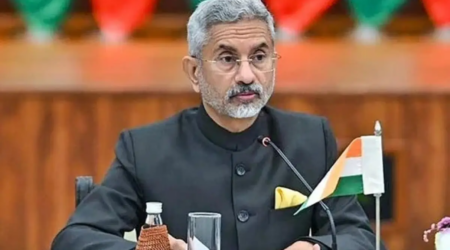By Soutik Biswas
“You feel violated, there’s no doubt about it,” said Siddharth Varadarajan, co-founder of The Wire, a nonprofit news and opinion website in India.
“This is an incredible intrusion,” he said. “Nobody should have to deal with this.”
Mr Varadarajan, according to media reports, is one of the activists, journalists, politicians and lawyers around the world that have been targeted with phone spyware sold to governments by an Israeli firm. Of a leaked database of 50,000 numbers of interest to the firm’s clients, more than 300 reportedly belong to Indians, according to The Wire.
The Wire was one of 16 international media outlets which investigated the leaked list and the use of Pegasus spyware.
This is not the first time Pegasus, which can infect smartphones without users’ knowledge and access virtually all their data, and which is made by the Israeli software firm NSO Group, has been linked to the targeting of journalists and human rights activists.
In 2019, there was outrage in India and other countries after WhatsApp confirmed that some of its users were targeted with spyware. A total of 121 users from India, including activists, scholars and journalists, were affected by the breach. This, experts said, suggested the involvement of state agencies in India. (WhatsApp sued NSO, alleging the company was behind cyber-attacks on 1,400 mobile phones involving Pegasus.)
To be sure, it is still not clear where the new leaked list came from, who ordered the hack or how many phones had actually been hacked.
Now, as in 2019, NSO has denied any wrongdoing, saying the allegations had no “factual basis” and were “far from reality”. A spokesperson for the firm told the BBC: “We will continue to investigate all credible claims of misuse and take appropriate action based on the results of these investigations”.
Phones can be tapped in India “in the interest of sovereignty and integrity of India” and only on the orders from the senior-most official in charge of the home affairs ministry in the federal and state governments.
“But the processes of such authorisation have never been clear,” Manoj Joshi, a fellow of the Delhi-based think tank Observer Research Foundation, said.
The intelligence agencies have a chequered history. Federal and state governments of all political hues appear to have used them to snoop on their opponents, and their own.
Some 10 agencies in India are authorised to wiretap legally. The most powerful of them is the 134-year-old Intelligence Bureau, the country’s largest and most powerful intelligence service with wide-ranging powers. Apart from surveillance on threats from terrorism, it conducts background checks on candidates for high office, like judges; and surveils, as one expert said, “political life and elections”.
Unlike the US, India has no special courts that authorise surveillance by state agencies.
(The opinion appeared in the BBC)











